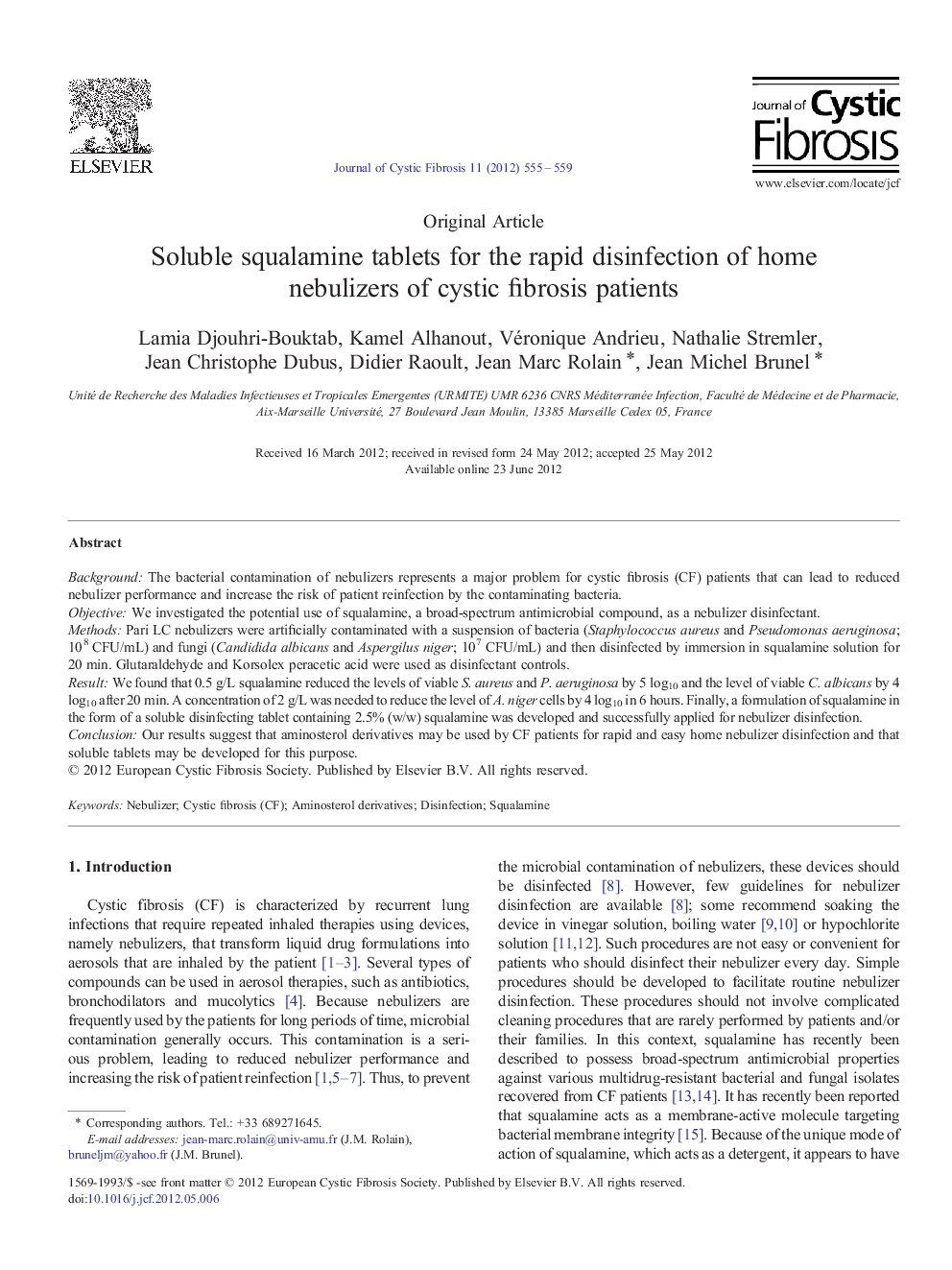| کد مقاله | کد نشریه | سال انتشار | مقاله انگلیسی | نسخه تمام متن |
|---|---|---|---|---|
| 4208218 | 1280435 | 2012 | 5 صفحه PDF | دانلود رایگان |

BackgroundThe bacterial contamination of nebulizers represents a major problem for cystic fibrosis (CF) patients that can lead to reduced nebulizer performance and increase the risk of patient reinfection by the contaminating bacteria.ObjectiveWe investigated the potential use of squalamine, a broad-spectrum antimicrobial compound, as a nebulizer disinfectant.MethodsPari LC nebulizers were artificially contaminated with a suspension of bacteria (Staphylococcus aureus and Pseudomonas aeruginosa; 108 CFU/mL) and fungi (Candidida albicans and Aspergilus niger; 107 CFU/mL) and then disinfected by immersion in squalamine solution for 20 min. Glutaraldehyde and Korsolex peracetic acid were used as disinfectant controls.ResultWe found that 0.5 g/L squalamine reduced the levels of viable S. aureus and P. aeruginosa by 5 log10 and the level of viable C. albicans by 4 log10 after 20 min. A concentration of 2 g/L was needed to reduce the level of A. niger cells by 4 log10 in 6 hours. Finally, a formulation of squalamine in the form of a soluble disinfecting tablet containing 2.5% (w/w) squalamine was developed and successfully applied for nebulizer disinfection.ConclusionOur results suggest that aminosterol derivatives may be used by CF patients for rapid and easy home nebulizer disinfection and that soluble tablets may be developed for this purpose.
Journal: Journal of Cystic Fibrosis - Volume 11, Issue 6, December 2012, Pages 555–559